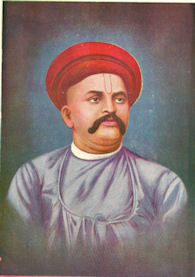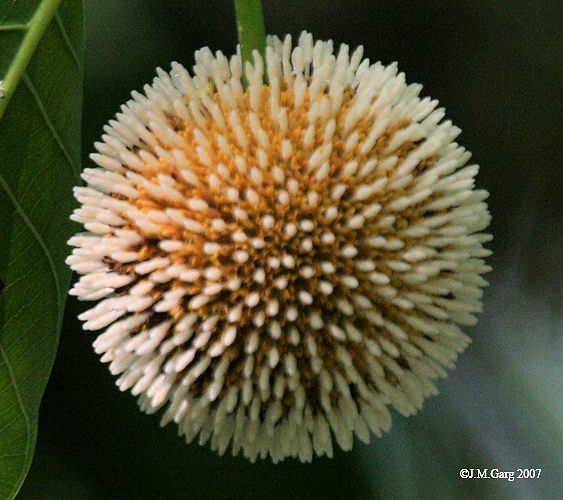

Mit den Auflösungen nach dem "Key" neu herausgegeben von Alois Payer
Zitierweise | cite as:
Apte, Vaman Shivaram <1858 - 1892>: The student's guide to Sanskrit Composition (Being a treatise on Sanskrit Syntax). -- 3. ed. -- 1890. -- 11. Lesson XI. -- Fassung vom 2010-03-06. -- URL: http://www.payer.de/apte/apte11.htm
Ursprünglich erschienen als:
Apte, Vaman Shivaram <1858 - 1892>: The student's guide to Sanskrit composition : being a treatise on Sanskrit syntax ; for the use of schools and colleges. -- 3rd ed. -- Poona : R. A. Sagoon, 1890. -- 450 S.
A Key to Apte's Guide to Sanskrit composition : giving a close rendering into English and Sanskrit of all the Sanskrit and English sentences / compiled by an experienced graduate teacher. -- 2d ed. -- Bombay : Standard Pub., 1923. -- 136 p. ; 18 cm
Erstmals hier publiziert: 2010-03-06
Überarbeitungen:
©opyright: Public domain
Dieser Text ist Teil der Abteilung Sanskrit von Tüpfli's Global Village Library
Falls Sie die diakritischen Zeichen nicht dargestellt bekommen, installieren Sie eine Schrift mit Diakritika wie z.B. Tahoma.
Die Devanāgarī-Zeichen sind in Unicode kodiert. Sie benötigen also eine Unicode-Devanāgarī-Schrift.
Use of brackets:
<> = Apte`s own Notes (loc. cit. pp. 277ff.)
[] = A Key to Apte's Guide to Sanskrit composition : giving a close rendering into English and Sanskrit of all the Sanskrit and English sentences / compiled by an experienced graduate teacher. -- 2d ed. -- Bombay : Standard Pub., 1923. -- 136 p. ; 18 cm
{} = Notes by Alois Payer
§ 120. 'When the participle agrees with a subject, different from the subject of the verb, the phrase is said to be in the Absolute construction.' (Bain). The phrase is unconnected with the general structure of the clause in which it stands; as, 'the wind, being favourable, the ship set to sail.' The Absolute case differs in different languages; in English it is the Nominative; in Latin, the Ablative; and in Sanskrit, the Genitive and Locative. If it be found that the nominative of the subordinate sentence is not a noun occurring in the principal sentence, or a pronoun representing such a noun, the Absolute construction may be used. Take the sentence: 'Rāma, after he had taken Laṅkā, returned to Ayodhyā.' Here the subject of both the sentences are the same, and no absolute construction can be used. The sentence may be translated by लंकां गृहीत्वा (or गृहीतलंकः) रामो ऽयोध्यां निववृते. But the sentence 'Rāma, after the monkeys had taken Laṅkā, returned to Ayodhyā,' may be translated by कपिभिर्गृहीतायां लंकायां (or कपिषु लंकां गृहीतवत्सु) राम ऽयोध्यां निववृते.
Note. - To form these Absolutes, the subject of the participle must be put in the Genitive or Locative case, and the participle made to agree with it in gender and number.
§ 121.1 A noun or pronoun, which expresses a thing the action done or suffered by which indicates the time of another action, is put in the Locative case, i.e. the time of the first action is supposed to be known, and that of the second, which is unknown, is determined with reference to it; as, कः पौरवे वसुमतीं शासति अविनयमाचरति (Śakuntalā 6) 'who, while Paurava is ruling the Earth, acts unmodestly?'; वचस्यवसिते तस्मिन् ससर्ज गिरमात्मभूः (Kumārasambhava II.53) 'that speech being finished, the self-existent (Brahmā) uttered the words'. क एष मयि स्थिते चन्द्रगुप्तमभिभवितुमिच्छति (Mudrārākṣasa 1) 'who, while I am still living, wishes to overcome Candragupta?'
1 यस्य च भावेन भावलक्षणम् । (Pāṇini II.3.37) {'By the action (bhāva) of whatsoever, the time of an other action is indicated, that takes the seventh case-affix.'}
Obs. The Locative Absolute in Sanskrit is used in the sense of the Nominative Absolute in English.
§ 122. When 'contempt' or 'disregard' is to be shown, the Genitive absolute is used; as, नन्दाः पशव इव हताः पश्यतो राक्षसस्य (Mudrārākṣasa 3) 'the Nandas were killed like (so many) beasts, Rākṣasa looking on (notwithstanding that Rākṣasa was looking on).' Thus, where clauses or sentences introduced by 'notwithstanding', 'in spite of', 'for all' &c. occur in English, the Genitive absolute may be used; as 'in spite of (for all) my looking on, the child was snatched away by a hawk' पश्यतो ऽपि मे श्येनेनापहृतः शिशुः (Pańcatantra I.24).
§ 123. The Genitive, like the Locative absolute, is frequently used to express the sense of the English particles 'when', 'while', &c., it not conveying its usual meaning; as, एवं तयोः परस्परं वदतोः स राजा शयनमासाद्य प्रसुप्तः (Pańcatantra I.9) 'while they two were thus speaking, the king coming to his bed slept down'.
Obs. When the participle of an absolute construction is 'being,' it is omitted in Sanskrit, and two substantives or a substantive and adjective, are put together in the absolute case; as, नाथे कुतस्त्वय्यशुभं प्रजानां (Raghuvaṃśa V.13) 'you (being) the lord, how can any mishap befall the subjects?'
So in Latin: 'M. Tullio Cicerone et Antonio consulibus.' {'When M. Tullius Cicero and Antonius were consuls.'}
§ 124. Sometimes both the Genitive and Locative absolutes are used to show 'disregard', 'in spite of' &c.; as, रुदति पुत्रे रुदतो वा पुत्रस्य पिता प्राव्राजीत् (Siddhāntakaumudī) 'the father turned out a recluse, in spite of his son's weeping.'
(a) The sense of 'as soon as', 'no sooner - than'; 'scarcely - when', 'the moment that' &c. is expressed by the Locative absolute, with the word एव used with the Locative, or मात्र joined to the participle, and the compound word is put in the Locative, with or without एव; as, अनवसितवचन एव मयि महानाशीविष उदैरयच्छिरः (Daśakumāracarita II.4) 'the moment I had finished my speech (scarcely had I finished etc.) when a large serpent lifted up its hood'; अप्रभातायामेव रजन्यां (Mudrārākṣasa 1) 'when it had scarcely dawned (scarcely had the night dawned)'; प्रविष्टमात्र एव तत्रभवति निरुपप्लवानि नः कर्माणि संवृत्तानि (Śakuntalā 3) 'no sooner had his honour stopped in, than our actions were left without any obstruction.'

Abb.:
अनवसितवचन एव मयि महानाशीविष उदैरयच्छिरः
Indian Cobra, Naja naja
outside a home in BR Hills (ಬಿಳಿಗಿರಿರಂಗನ
ಬೆಟ್ಟ),
Yelandur (ಯಳಂದೂರು), Karnataka (ಕರ್ನಾಟಕ)
[Source: Prashanth NS / Wikipedia. --
Creative Commons
License (attribution, share alike)]
Note. - मात्र with or without एव, joined to other cases, gives the same meaning; as, जातमात्रं न यः शत्रुं व्याधिं च प्रशमं नयेत् (Pańcatantra III.1) 'he who does not quell an enemy and a disease as soon as that is born (arises.'
(b) Sometimes the word agreeing with the participle is an indeclinable, such as एवं, इत्थं, तथा, इति, &c.; as, एवं गते (Śakuntalā 4) 'such being the case'; तथानुष्ठिते (Hitopadeśa 3) 'it being so done' &c.
§ 125. The subject or object of an absolute construction is not repeated in the principal sentence, in any case except the Genitive, either in its own form, or when it is represented by a demonstrative pronoun.
[Key: The subject or object of an absolute construction is not repeated, as in गोषु दुह्यमानासु &c. - except in the Genitive, as in मदने हरेण दग्धे तस्य (मदन्यस्य); see the next instance, विवशा बभूव - Became unconscious, fainted.]
When instances occur in which the subject or object, or the pronoun representing it, is to be used in the principal sentence, the absolute construction should not be used; the whole should be treated as one sentence, and translated by the use of participles; e.g. instead of saying गोषु दुह्यमानाद्सु ता जलमपाययत्, we should say दुह्यमाना गा जलमपाययत्; similarly, आगतेषु विप्रेषु तेभ्यो दक्षिणां देहि is not so idiomatic as आगतेभ्यो विप्रेभ्यः &c.; or आपणात्पात्रे समानीते तस्मिन्नन्नं पचामि, as आपणात्समानीते पात्रे ऽन्नं पचामि. So also सारंगे एवं विचारयति स (सारंगः) व्याधेन हतः is not so idiomatic as एवं विचारयन्सारंगो व्याधेन हतः; and तादयतो ऽपि स्वामिनस्तस्मै भृत्या न कुप्यन्ति is not as idiomatic as ताडयते ऽपि स्वामिने भृत्या न कुप्यन्ति. But मदने हरेण दग्धे तस्य पत्नी विवशा बभूव, or मृते ऽस्मिन्राज्ञि तस्य पुत्रो राज्यमधिगमिष्यति is perfectly idiomatic.1
1 This is a point on which grammarians are silent; still I think it may be said to be definitely settled by
- the very definition of an absolute construction,
- the overwhelming evidence furnished by the best Sanskrit writers, and
- the analogy of other classical languages, e.g. Latin.
- The definition distinctly implies that the subject of the absolute phrase must not be a noun occurring in the principal sentence, and hence it cannot be repeated in any case.
- Secondly, in the several instances of absolute constructions that we find in Sanskrit authors, we find very few, or hardly any, cases in which the subject or object is repeated in the principal assertion in any case except in the Genitive. And just as we should not say महाबली in the sense of 'having much strength,' but merely महाबलः, the same meaning being more compactly expressed in this word; so also constructions like दुह्यमाना गा जलमपाययत् are more compact than गोषु दुह्यमानासु &c., and have, therefore, become more idiomatic.
- Thirdly, the nature of an absolute case in Latin is precisely the same. "When a substantive or pronoun together with a participle or an adjective, form a clause by themselves and are not under the government of, or in agreement with, any other words, they are put in Ablative absolute;" as 'Pythagoras Tarquinio Superbo regnante in Italiam venit.' {'Pythagoras came under the reign of Tarquinius Superbus to Italy'.}
Thus, though Sanskrit grammarians are silent on this point, the three circumstances above alluded to lead to the conclusion that what is more compact and idiomatic is more correct than that which grammarians by their silence do not condemn.
A friend from the South draws my attention to a work called Nārāyaṇīyam - an abridgement of Śrī-Bhāgavatapurāṇa - in which the writer does not invariably observe the rule given above. My friend quotes two or three instances in support of his statement. I, for my part, should consider such instances inaccurate and unidiomatic if not positively incorrect constructions, rather than modify the rule by relying on insufficient evidence.
अलमलमुपालम्भेन । पत्तने विद्यमाने ऽपि ग्रामे रत्नपरीक्षा ॥१॥ (Malavikāgnimitra 1)
<Notes: Said by Parivrājikā, when she was told to sit as a judge to decide the quarrel between the two dancing preceptors. पत्तने etc. - a question; 'is a jewel examined in a village, there being a town (hard by)?' - meaning that the king alone was fit to do the duty asked of her.>
[Key: Enough of taunting. Is a jewel to be examined in a village where there is a town at hand?]
इदमवस्थान्तरं गते ताद्दृशे ऽनुरागे किं वा स्मारितेन ॥२॥ (Śakuntalā 5)
[Key: What is the use of reminding him when love of that kind has undergone such a change?]
मा तावदनात्मज्ञे । देवेन पतिषिद्धे वसन्तोत्सवे त्वमाम्रकलिकाभङ्गं किमारभसे ॥३॥ (Śakuntalā 6)
<Notes: मा तावत् 'Oh, do not so', 'hold, hold.'>
[Key: Act not so, thou silly girl (lit. who dost not know thy interest). When the vernal festival has been forbidden by His Majesty why doest thou pluck the mango-blossoms?]

Abb.: त्वमाम्रकलिकाभङ्गं किमारभसे
Mango blossom
[Source: mr_tentacle.
--
http://www.flickr.com/photos/mr_tentacle/212641553/. -- Downloaded on
2010-03-01. --
Creative
Commons License (attribution, no commercial use, no derivative works)]
अभिव्यक्तायां चन्दिकायां किं दीपिकापौनरुक्त्येन ॥४॥ (Vikramorvaśīya 3)
<Notes: किं दीपिकापौनरुक्त्येन 'why the superfluity of lights,' 'why want these lights', they are superfluous.>
[Key: What is the use of this superfluous light of torches when the moon-light is quite clear (bright)?]

Abb.: अभिव्यक्तायां चन्दिकायां किं दीपिकापौनरुक्त्येन
Bangalore
[Source: rajeshvj. --
http://www.flickr.com/photos/rajeshvj/4322385390/. -- Downloaded on
2010-03-01. --
Creative
Commons License (attribution, no commercial use, no derivative works)]
आर्ये आत्रेयि अथ तस्मादरण्यात्परित्यज्य गते लक्ष्मणे सीतादेव्याः किं वृत्तमित्यस्ति काचित्प्रवृत्तिः ॥५॥ (Uttararāmacarita 2)
<Notes: किं वृत्तं 'what became of her,' 'how it fared with her.'>
[Key: Venerable Ātreyī, hast thou any knowledge as to what happened to (what fate overtook) queen Sītā, after Lakṣmaṇa went away from the forest, leaving her there?]
हा कष्टमरुन्धतीवसिष्ठाधिष्ठितेषु रघुकदंबकेषु जीवन्तीषु च प्रवृद्धासु राज्ञीषु कथमिदमापतितम् ॥६॥ (Uttararāmacarita 2)
<Notes: रघुकदंबकेषु 'the pre-eminent among Raghus'.>
[Key: अरुन्धतीवसिष्ठाभ्यामधिष्ठितेषु । प्रशस्ता रघवः रघुकदम्बकास्तेषु ।
Alas o pity! How could this come to pass when the eminent Raghus are guided by Arundhatī and Vasiṣṭha and while the old queens are yet alive.]
{कदम्बक m. = Neolamarckia cadamba (Roxb.) Bosser = Kadam; from there derived n.: multitude}

Abb.: कदम्बकः =
Neolamarckia cadamba
(Roxb.) Bosser = Kadam
Kolkata
[Source: J.M.Garg / Wikipedia. -- GNU FDLIcense]
अत्रान्तरे शक्तिखंडामर्षितेन गांडीविनैवं भणितम् । अरे दुर्योधनप्रमुखाः कुरुबलसेनाप्रभवः अरे अविनयनदीकर्णधार कर्ण युष्माभिर्मम परोक्ष एकाकी पुत्रको ऽभिमन्युर्व्यापादितः । अहं पुनर्युष्माकं प्रेक्षमाणानामेनं कुमारवृषसेनं स्मर्त्व्यशेषं नयामि ॥७॥ (Veṇīsaṃhāra 4)
<Notes: स्मर्तव्यशेषं नयामि 'make him only remain his memory,' i.e. kill him.>
[Key: शक्तेः खण्डः शक्तिखण्डः तेन अमर्षितः तेन । सेनायाः प्रभवः सेनाप्रभवः । कुरुबलस्य सेनाप्रभवः । न विनयः अविनयः ; अविनय एव नदी तत्र कर्णधारः । अक्ष्णः परं परोक्षं तस्मिन् ।
In the meantime it was thus proclaimed by Arjuna, enraged at his missile cut into pieces - O you, generals of the Kuru force Duryodhana and otrhers, O you, Karṇa, the helmsman in the river of injustice (unjust actions), my son, Abhimanyu, who was alone (fighting single-handed), was killed by you, in my absence; but I, on the other hand, will consign the young Vṛṣasena to the domain of history (memory i.e. will kill him) while you are looking on (in spite of your presence).]
{गाण्डिव = the bow of Arjuna; therefore गाण्डिविन् = Arjuna}

Abb.: गाण्डिवी
Ubud, Bali, Indonesia
[Source: Ilussion / Wikipedia. --
Creative Commons
License (attribution)]
कुतो
धर्मक्रियाविघ्नः सतां रक्षितरि त्वयि ।
तमस्तपति धर्मांशौ कथमाविर्भविष्यति ॥८॥ (Śakuntalā 5)
[Key: धर्मस्य क्रिया धर्मक्रियाः तासु विघ्नः । Construe धर्मांशौ तपति तमः &c.
Thou being the protector of the good (or the righteous) whence can there be obstacles in our religious performances? When the sun is shining, how can darkness make its appearance?]
मनोरथस्य यद्बीजं
तद्दैवेनादितो हतम् ।
लतायां पूर्वलूनायां प्रसूनस्यागमः कुतः ॥९॥ (Uttararāmacarita 5)
<Notes: बीजं Sītā herself, who, when she was pregnant, was cast off.>
[Key: That which was the germ of your desire (i.e. Sītā) was cut at its root by fate. When the creeper is already cut off how can a flower appear?]
सा
सीतामङ्कमारोप्य भर्तृप्रणिहितेक्षणाम् ।
मा मेति व्याहरत्येव तस्मिन्पातालमभ्यगात् ॥१०॥ (Raghuvaṃśa XV.84)
<Notes: सा Pṛthvī. मा मेति व्याहरत्येव 'just as he (the lord) was saying 'Oh, do not, do not take her away'.>
[Key: भर्तरि प्रणिहिते ईक्षणे यया ताम् ।
She, having placed Sītā, whose eyes were fixed on her husband, on her lap, entered the nether world just as he cried out 'Don't don't'.' See notes.]
राजा देवीमुखेन दुहितरमुवाच । पुत्रि त्वयि दुहितरि स्थितायां किमेवं युज्यते यत् सर्वे पार्थिवा मया सह विग्रहं कुर्वन्ति ॥१॥ (Pańcatantra I.5)
[Key: देवी एव मुखं देव्या मुखं वा तेन ।
The king addressed (or said to) his daughter through the queen, - 'When thou art my daughter, is it proper that all the kings should wage war with me?']
अथ कदाचिदवसन्नायां रात्रावस्ताचलचूडावलम्बिनि भगवति कुमुदिनीनायके चन्द्रमसि लघुपतनको नाम वायासो व्याधमपश्यत् ॥२॥ (Hitopadeśa 1)
[Key: अवसन्ना - P.P.P. of सद् with अव. अस्ताचलस्य चूडा अस्ताचलचूडामवलबते ऽसौ अस्ताचलचूडावलम्बी तस्मिन् । कुमुदिन्या नायकः कुमुदिनीनायकः तस्मिन् । लघुपतनमस्यासौ लघु्पतनकः ।
Now, on one occasion, as the night drew to its close and the divine moon, the lord of the night lotus, hung on the crest of the setting mountain, a crow, Laghupatanaka by name, saw a hunter.]
{कुमुदिनी = Nymphea sp. (varieties which bloom only in the night). In India the following species of Nymphea occur: N. alba L., N. nouchali Burm. f., N. stellata Willd., N. tetragona Georgi}

Abb.: Nymphea stellata Willd. - Indian
blue water-lily
Sri Lanka
[Source: YimHafiz. --
http://www.flickr.com/photos/yimhafiz/3237035422/. -- Downloaded on
2010-03-04. --
Creative Commons License (attribution)]
विकारहेतौ सति विक्रियन्ते
येषां न चेतांसि त एव धीराः ॥३॥ (Kumārasambhava I.59)
[Key: Those only are patient (men of fortitude) whose minds are not allured (lit. undergo no change) when the cause of temptation is present.]
अनपायिनि संश्रयद्रुमे गजभग्ने पतनाय वल्लरी ॥४॥ (Kumārasambhava IV.31)
<Notes: पतनाय वल्लरी 'a creeper (dependent on the tree) tends (is sure) to fall down.'>
[Key: अपायः विद्यते ऽस्यासौ अपायी न अपायी अनपायी तस्मिन् । संश्रयस्य द्रुमः संश्रयद्रुमः तस्मिन् । गजेन भग्नः गजभग्नः तस्मिन् ।
When the tree of resort that was safe is demolished by an elephant, the creeper (clinging to it) falls.]

Abb.: अनपायिनि
संश्रयद्रुमे गजभग्ने पतनाय वल्लरी
Delhi - दिल्ली
[Source: Pranav Singh. --
http://www.flickr.com/photos/pranavsingh/999580726/. --
Downloaded on 2003-03-05. --
Creative
Commons License (attribution, no commercial use, share alike)]
यस्मिञ्जीवति
जीवन्ति बहवः सो
ऽत्र जीवति ।
वयांसि किं न कुर्वन्ति चञ्च्वा स्वोदरपूरणम् ॥५॥ (Pańcatantra I.1)
[Key: He only lives in this world who living, many live (i.e. who supports many;) (else) do not the birds maintain themselves by means of their bills?]
दर्शितभये
ऽपि धातरि धैर्यध्वंसो भवेन्न धीराणाम् ।
शोषितसरसि निदाघे नितरामेवोद्धतः सिंधुः ॥६॥ (Pańcatantra I.11)
<Notes: The strong-minded are deterred by the appearance of danger.>
[Key: दर्शितं भयं येन तस्मिन् । शोषितानि सरांसि येन तस्मिन् ।
Though the Creator (fate) assumes an attitude of terror (though fate frowns) there is no loss of fortitude on the part of the patient or wise (they do not lose courage); when the hot season dries up lakes, the ocean swells exceedingly (as proudly as before).]
गुणवत्तरपात्रेण
छाद्यन्ते गुणिनो गुणाः ।
रात्रौ दीपशिखाकान्तिर्न भानावुदिते सति ॥७॥ (Pańcatantra I.16)
[Key: The merits of meritorious persons are eclipsed by one possessed of greater merits; the light of a lamp prevails by night and not when the sun rises.]
संतानवाहीन्यपि
मानुषाणां दुःखानि सद्बन्धुवियोगजानि ।
दृष्टे जने प्रेयसि दुःसहानि स्रोतःसहस्रैरिव संप्लवन्ते ॥८॥ (Uttararāmacarita 4)
<Notes: संतानवाहीनि 'continuously flowing,' 'incessantly working.' श्रोतःसहस्रैरिव संप्लवन्ते 'flow together, as it were, in thousands of currents,' find out thousands of new channels to vent themselves.>
[Key: सन्तानेन वहन्तीति सन्तानवाहीनि । सञ्चासौ बन्धुः सबन्धुस्तस्माद्वियोगः सद्बन्धुवियोगः तस्माज्जायन्ते इति तानि स्रोतसां सहस्राणि तैः ।
The griefs of men, caused by separation from beloved (सत्) relative, though flowing in a continuous stream, become unbearable when a dearly loved person is seen and flow forth in a thousand streams, as it were.]
पञ्चभिर्निर्मिते
देहे पञ्चत्वं च पुनर्गते ।
स्वां स्वां योनिमनुप्राप्ते तत्र का परिदेवना ॥९॥ (Hitopadeśa 4)
<Notes: पञ्चभिः 'the five constituent elements.' पञ्चत्वं गते 'reduced to the state of five,' resolved or decomposed into its component members.>
[Key: When the body, which is created out of the five lements, is again reduced to the state of five (resolved back into its constituent elements) and each is restored to its own self, what lamentation can there be (where is the cause for lamentation?']
सर्वत्र नो
वार्तमवेहि राजन्नाथे कुतस्त्वय्यशुभं प्रजानाम् ।
सूर्ये तपत्यावरणाय दृष्टेः कल्पेत लोकस्य कथम् तमिस्रा ॥१०॥ (Raghuvaṃśa V.13)
[Key: Know thou our welfare in all respects; thou being the protector (or master) how can misfortune (or evil) befall thy subjects? The sun shining (while the sun shines) how can (a mass of) darkness blindfold the eyes of men?]
तस्मिन्ह्रदः
संहितमात्र एव क्षोभात्समाविद्धतरंगहस्तः ।
रोधांसि निघ्नन्नवपातमग्नः करीव वन्यः परुषं ररास ॥११॥ (Rahuvaṃśa XVI.78)
<Notes: तस्मिन् = अस्त्रे, the missile which was used by Kuśa against Vāsuki to get back his golden bracelet. समाविद्ध etc. 'with its hands in the form of waves tossed about through agitation.' रोधांसि निघ्नन् 'violently dashing against the sides.'>
[Key: संहित एव संहितमात्रं तस्मिन् । Construe - तस्मिन् (अस्त्रे) सम्हितमात्र एव ह्रदः क्षोभात् समाविद्धाः तरङ्गा एव हस्ता येन स तथा रोधांसि निघ्नन् अवपाते मग्नः अवपातनग्नः समाविद्धः तरङ इव हस्तः शुण्डा येन स तथा रोधांसि निघ्नन् वन्यः करी इव ररास ।
The moment the miraculous weapon was fixed (on the bow-string) the pool, tossing about its hands in the form of waves through agitation and violently dashing against its sides roared like a wild elephant fallen into a pit that then throws about his trunk curling like a wave in wild fury and strikes against its sides.]
जीवत्सु तातपादेषु
नवे दारपरिग्रहे ।
मातृभिश्चिन्त्यमानानां ते हि नो दिवसा गताः ॥१२॥ (Uttararāmacarita 1)
[Key: Even those days are gone when my father lived and I was newly married and taken care of by my mothers.]
त्वय्युत्कृष्टबले
ऽभियोक्तरि
नृपे नन्दानुरक्ते पुरे
चाणक्ये चलिताधिकारविमुखे मौर्ये नवे राजनि ।
स्वाधीने मयि मार्गमात्रकथनव्यापारयोगोद्यमे
त्वद्वाञ्छान्तरितानि संप्रति विभो तिष्ठन्ति साध्यानि वः ॥१३॥ (Mudrārākṣasa 4)
<Notes: Rākṣasa says to Malayaketu that everything is ready for action, and every circumstance is favourable to them. त्वद्वाञ्छांतर्तानि 'obstructed by your desire,' i.e. 'only desire to march onward, and everything else is ready.' The several Locative absolutes show the favourable circumstances. चलिताधिकारविमुखे 'indifferent, being dismissed from his authority.' मार्ग etc. - योग is superfluous; 'whose business is only pointing out the way.'>
[Key: उत्कृष्टं बलं यस्य स तस्मिन् । नन्दे अनुरक्तं नन्दानुरक्तं तस्मिन् । मार्ग एव मार्गमात्रं तस्य कथनं तत्र व्यापारस्तेन योगः तस्मिन्नुद्यमो यस्य स मार्गमात्रकथनव्यापारयोगोद्यमः तस्मिन् । तव वाञ्छा त्वद्वाञ्छा तया अन्तरितानि ।
When we have a king like you possessed of superior strength (or an excellent army) as the leader of the invasion (अभियोक्तरि) when the city (of Pāṭaliputra) is attached to Nanda, when Cāṇakya is estranged (lit. turned away from Maurya) and Maurya (Candragupta) is a new king (i.e. has not yet secured the affections of the people), and when I am at your disposal whose exertion will be confined (solely) to the office of pointing out the way (i.e. to serve as your guide), the objects we want to accomplish, O lord, are now hidden from us (remain unachieved) by the (want of) your desire (to march) only.]
अस्त्रज्वालावलीढप्रतिबलजलधेरन्तरौर्वायमाणे
सेनानाथे स्थिते
ऽस्मिन्मम पितरि गुरौ सर्वधन्वीश्वराणाम् ।
कर्णालं संभमेण व्रज कृप समरं मुञ्च हार्दिक्य सङ्कां
ताते चापद्वितीये वहति रणधुरां को भयस्यावकाशः ॥१४॥ (Veṇīsaṃhāra 3)
<Notes: Said by Aśvatthāman. a/b 'Who acted like the submarine fire in the ocean consisting of the enemy's forces lapped by the flames of the missiles' hurled against them.>
[Key: अस्त्राणां ज्वाला अस्त्रज्वालाः ताभिः अवलीढं यत्प्रतिबलं तदेव जलधिः or अवलीढः प्रतिबलंएव जलधिस्तत्र । और्वा इव आचरमाणे । धनुरस्यास्तीति धन्वी धन्विनामीश्वराः धन्वीश्वराः सर्वे च ते धन्वीश्वरास्तेषाम् । चापं द्वितीयो यस्य तस्मिन् । रणस्य धूः रणधूरा ताम् ।
When my father here, the preceptor of all eminent leaders (lit. princes) of bowmen, who is acting like the submarine fire in the ocean of the army of the enemy licked up by the flames of his missiles, is the leader of our forces, O Karṇa, enough of your fear; Kṛpa, go to the battlefield; Hārdikya, dismiss all fear; when my father, armed with his bow, is bearing the brunt (lit. yoke) of the battle where is the room for fear?]
All translations from the Key.
N.B. The following sentences should be translated by using the absolute construction only.
1. Men commit misdeeds, though gods see them.
देवेषु पश्यत्स्वपि or पश्यतां देवानां नरा दुष्कर्माणि कुर्वन्ति ॥१॥
2. The tree of self-respect being cut down by the wild elephant of poverty, all the birds of merit fly away.
दैन्यमतङ्गनेन (दारिद्र्यगजेन) भग्ने ऽभिमानद्रुमे सर्वे गुणपक्षिन उड्डयन्ते ॥२॥
3. The moment the picture is finished by the painter, come to call me.
चित्रकारेण कृते (or आलेखकेन) संपितमात्र एवालेख्ये मामाह्वातुमागच्छ ॥३॥
4. Scarcely had the sage uttered these words, when the lovely nymph was transformed in a moment into a stone.
एताञ्शब्दानुदीरितवत्येव मुनौ सा रमणीयदर्शना - चारुगात्री अप्सरा क्षणेनाश्मभावेन - रूपेण परिणता ॥४॥
5. The cause of danger being so distant, why do you, under colour of illness, say that you will be unable to accompany us ?
तथा दूरे भयहेतौ किमिति त्वमामय - रुजा - व्याजेन or व्याधिं निमित्तीकृत्यास्मभिः सहागन्तुमसमर्थो ऽस्मीति वदसि ॥५॥
6. When this sad news reached their ears, they were excessively distressed.
अस्यां शोकावहायां or उद्वेगजनकायां वार्तायां तेषां श्रवणपथमागतायामेव ते or इमां वार्तां श्रुवन्त एव ते अतीव दुःखपीडिता or व्यथिता बभुवुः ॥६॥
7. I do not know what became of the boy after he had been ruthlessly abandoned by his mother.
मात्रा निष्करूणं or निर्दयतया त्यक्ते बाले तस्य किं वृत्तमिति न जाने ॥७॥
8. His mind being engrossed by these and the like perplexing thoughts, he passed a sleepless night.
एवंविधैः एतादृशैरन्यैश्च व्यामोहकारिभिः or चित्तविक्षेप - वैक्लव्य - कारिभिः - विचारैः - संकल्पैः व्याप्तान्तःकरणस्य तस्य निर्णिद्रा or उत्सन्ननिद्रा शिशा जगाम or अन्तःकरणतया विनिद्रस्य etc. ॥८॥
9. No sooner was an arrow discharged at the object that he heard a plaintive cry in that direction.
लक्ष्यमभि or उद्दिश्य मुक्तमात्र एव शरे स तस्यां दिशि कस्यापि आर्तरदं - क्रन्दितं or करुणस्वरं शुश्राव ॥९॥
10. Damayantī wishes to have Nala for her husband, though there are the resplendent guardians of the worlds.
सतां भास्वरतेजसां लोकपालानां or सत्सु लोकपालेषु दमयन्ती नलमेव भर्तारमिच्छति ॥१०॥
11. Fie upon ye, base vaunters ! Who is able to cross even the shadow of my brother, while we, hundred brothers, are yet alive ?
धिग्वो नीचान्वृथा बलगर्वितान् - दृप्तान् or शूरमन्यान् or आत्मश्लाघापरान् जीवत्स्वस्मासु शते भ्रातृषु कस्य शक्तिरस्ति मम भ्रातुश्छायामप्याक्रामितुम् ॥११॥
12. The mass of darkness being dispelled by the rising moon, the eastern direction attracts my eyes.
उद्यता or उदयमानेन शशिना दूरोत्सारिते तमःसंघाते हरिवाहनदिक् or प्राची मे चक्षुषी - दृष्टिं हरति ॥१२॥
13. Notwithstanding my entreaties for the prisoner's life, the king ordered him to be executed.
बन्दिजनस्य or अपराधिनः प्राणान्रक्षितुं or प्राणरक्षणार्थं सनिर्बन्धं प्राथयमाने ऽपि मयि or प्राणान्सविनयं याचमाने ऽपि मयि नृपस्तस्य वधमादिशत् or नृपेण तस्य वध आदिष्टः ॥१३॥
14. Since death is certain, why do you sully your fame by having recourse to retreat ?
अवश्यंभाविनि - ध्रुवे मरणे किमिति पलायनेन यशो मलिनं कुरुध्वे ॥१४॥
To Lesson XII.